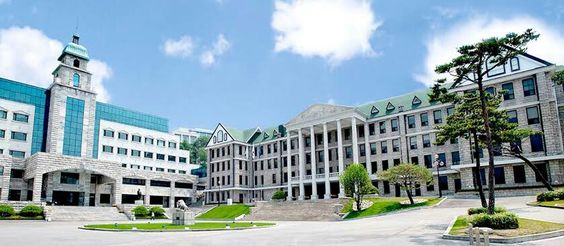Introduction
Hokkaido University (北海道大学), located in Sapporo, Japan, is one of the nation’s leading institutions for higher education and research. Founded in 1876 as Sapporo Agricultural College, it has evolved into a comprehensive university known for its academic rigor, innovative research, and commitment to global engagement. With a diverse array of programs and a vibrant campus community, Hokkaido University continues to play a significant role in shaping the future of education and research in Japan and beyond.
History of Hokkaido University
Founding and Early Development
Hokkaido University was originally established as Sapporo Agricultural College, aimed at training agricultural specialists to support the development of Hokkaido, a region rich in natural resources. The institution was a pioneer in agricultural education in Japan, focusing on practical training and research to promote agricultural advancement.
Growth and Expansion
In 1907, Sapporo Agricultural College became Hokkaido Imperial University, reflecting its expanded academic offerings and status. Over the years, the university broadened its scope to include various disciplines such as science, engineering, humanities, and social sciences, contributing significantly to Japan’s modernization.
Modern Era
Today, Hokkaido University is recognized as one of the top universities in Japan, consistently ranked among the best in Asia. It attracts students and researchers from around the world, known for its innovative research and commitment to global collaboration.
Academic Programs
Diverse Offerings
Hokkaido University offers a wide range of undergraduate and postgraduate programs through its various faculties and graduate schools:
- Faculty of Agriculture: Building on its historical roots, this faculty focuses on agricultural science, food production, and sustainable practices.
- Faculty of Science: This faculty emphasizes fundamental scientific research in areas such as biology, chemistry, physics, and mathematics.
- School of Engineering: Offering programs in mechanical, civil, electrical, and environmental engineering, this school emphasizes practical applications and technological innovation.
- Faculty of Medicine: Known for its research and training in healthcare, this faculty prepares future healthcare professionals and conducts cutting-edge medical research.
- Graduate School of International Media, Communication, and Tourism Studies: This program focuses on the global aspects of communication, media, and tourism, preparing students for international careers.
Research Excellence
Hokkaido University is renowned for its research initiatives and contributions across various fields. Key research areas include:
- Environmental Science: The university conducts pioneering research in ecology, climate change, and sustainable development, addressing critical global challenges.
- Bioscience and Biotechnology: Hokkaido University is at the forefront of research in genetics, microbiology, and agricultural biotechnology, contributing to advancements in health and agriculture.
- Renewable Energy: The university emphasizes research in sustainable energy solutions, including solar, wind, and biomass energy.
Campus Life
Student Community
With over 18,000 students, Hokkaido University boasts a diverse and vibrant academic community. The university welcomes students from various cultural and academic backgrounds, fostering collaboration and cross-cultural understanding.
Clubs and Societies
Hokkaido University offers numerous student organizations and clubs that cater to various interests, including academic societies, cultural groups, and sports teams. These clubs provide opportunities for personal development, networking, and social engagement.
Facilities and Resources
The campus features modern facilities, including lecture halls, laboratories, libraries, and study areas. The Hokkaido University Library provides extensive resources, including digital collections, research databases, and archives, supporting students and faculty in their academic pursuits.
Support Services
Hokkaido University is dedicated to supporting its students both academically and personally. It provides various services, including academic advising, counseling, and career development resources, ensuring that students have the support they need to succeed.
Global Engagement
International Partnerships
Hokkaido University actively engages in international collaborations with leading universities and research institutions worldwide. These partnerships enhance the university’s research capabilities and provide students with global learning experiences.
Study Abroad Programs
The university offers a variety of study abroad and exchange programs, allowing students to immerse themselves in different cultures and educational systems. These experiences broaden students’ perspectives and enhance their global competencies.
Research Collaborations
Hokkaido University collaborates with international research institutions on significant projects, fostering innovation and knowledge sharing. These partnerships have led to important advancements in various fields, contributing to global knowledge.
Social Impact
Community Engagement
Hokkaido University is committed to making a positive impact on local and global communities. The university encourages students and staff to participate in community service and outreach initiatives that address societal challenges and promote education.
Sustainability Initiatives
The university prioritizes sustainability in its operations and research. Hokkaido University has implemented various initiatives aimed at reducing its environmental footprint and promoting sustainable practices among students and staff.
Health and Wellbeing
Hokkaido University plays a vital role in promoting health and wellbeing through research, education, and community outreach. Its health programs focus on addressing pressing health challenges and improving community health outcomes.
Conclusion
Hokkaido University stands as a pillar of academic excellence, research innovation, and social responsibility. With its rich history, diverse academic offerings, and vibrant campus life, the university continues to shape the future of education and research in Japan and beyond. As it looks to the future, Hokkaido University remains dedicated to fostering a positive impact on society, cultivating a thriving community of learners, and contributing to global knowledge.
